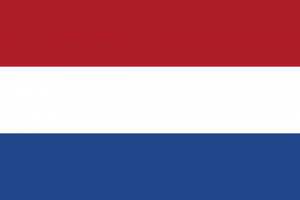Language/Dutch/Grammar/Nouns
Hi Dutch learners! 😊
In this lesson, we will dive into the Dutch grammar rules regarding nouns. Nouns are an essential part of any language, and learning how they work in Dutch will help you develop your conversational skills. We will cover everything from gender to plural forms, so let's get started!
Don't hesitate to look into these other pages after completing this lesson: Future Tense, Conditional Mood in Dutch, Prepositions of Place and Time & The Dative Case in Dutch.
Gender[edit | edit source]
In Dutch, every noun has a gender either masculine, feminine, or neuter. Unfortunately, there are no rules to determine the gender of nouns. Therefore, you have to learn the gender of each noun individually. However, there are a few generalizations that can help you guess the gender of some words:
- Words that end in -e are usually feminine, such as "de appel" (the apple)
- Words that end in -heid, -nis, -schap, -ing, or -teit are usually feminine, such as "de vrijheid" (the freedom)
- Words that end in -isme, -ment, -aar, or -ie are usually masculine, such as "de student" (the student)
- Words that end in -sel, -um, or -aar are usually neuter, such as "het meisje" (the girl)
Articles[edit | edit source]
The article has to agree with the gender of the noun it accompanies. In Dutch, there are two types of articles: definite and indefinite.
Definite Articles[edit | edit source]
In English, the definite article is "the." In Dutch, there are two forms of the definite article depending on the gender of the noun: "de" for masculine and feminine nouns, and "het" for neuter nouns. Here are some examples of the definite article in action:
| Dutch | Pronunciation | English |
|---|---|---|
| de man | de man | the man |
| de vrouw | de vrouw | the woman |
| het kind | het kind | the child |
Indefinite Articles[edit | edit source]
In English, the indefinite article is "a" or "an." In Dutch, the indefinite article also varies depending on the gender of the noun: "een" for masculine and feminine nouns, and "een" for neuter nouns:
| Dutch | Pronunciation | English |
|---|---|---|
| een boek | een boek | a book |
| een tafel | een tafel | a table |
| een huis | een huis | a house |
Plural Forms[edit | edit source]
In Dutch, the plural is formed by adding -en to a masculine or feminine noun and -s to a neuter noun. However, some nouns have irregular plural forms that you will have to learn as you go. Here are some examples:
| Dutch | Pronunciation | English |
|---|---|---|
| de man | de man-nen | the men |
| de vrouw | de vrouw-en | the women |
| het huis | de huis-sen | the houses |
Dialogue[edit | edit source]
Eva and Lars are discussing the gender of the words "book" and "computer."
- Eva: "Is 'boek' masculine, feminine, or neuter?" ('boek' = 'book')
- Lars: "It is a neuter noun, so it's 'het boek'." ('het boek' = 'the book')
- Eva: "What about 'computer'?" ('computer' = 'computer')
- Lars: "It's a masculine noun, so it's 'de computer'." ('de computer' = 'the computer')
Practice[edit | edit source]
Here are a few exercises to practice what you have learned:
1. What is the gender of the words: "de auto," "het raam," and "het boek"? 2. Form the plural of the words: "de hand," "de moeder," and "het brood." 3. Fill in the blanks with the correct article: "______ auto" and "______ vrouw."
- Answers: ##
1. "de auto" (masculine), "het raam" (neuter), and "het boek" (neuter) 2. "de handen," "de moeders," and "de broden" 3. "De auto" and "de vrouw"
If you want to practice more, find native speakers and ask them any questions. You can also improve your Dutch Grammar on Polyglot Club website.
Sources[edit | edit source]
➡ If you have any questions, please ask them in the comments section below.
➡ Feel free to edit this wiki page if you think it can be improved. 😎
Videos[edit | edit source]
Learn Dutch Grammar _ Master Important Rules for Plural Nouns ...[edit | edit source]
Learn Dutch phrases - using numbers and plural nouns - YouTube[edit | edit source]
Learn Dutch Grammar _ Possessive Pronouns - YouTube[edit | edit source]
Other Lessons[edit | edit source]
- Questions
- Interrogative words in Dutch
- Conditional Mood
- Ablative Case in Dutch
- Conditional Mood in Dutch
- Definite Articles in Dutch
- Present Continuous in Dutch
- How to use “to speak” in Dutch
- How to use “must” in Dutch
- Plural

